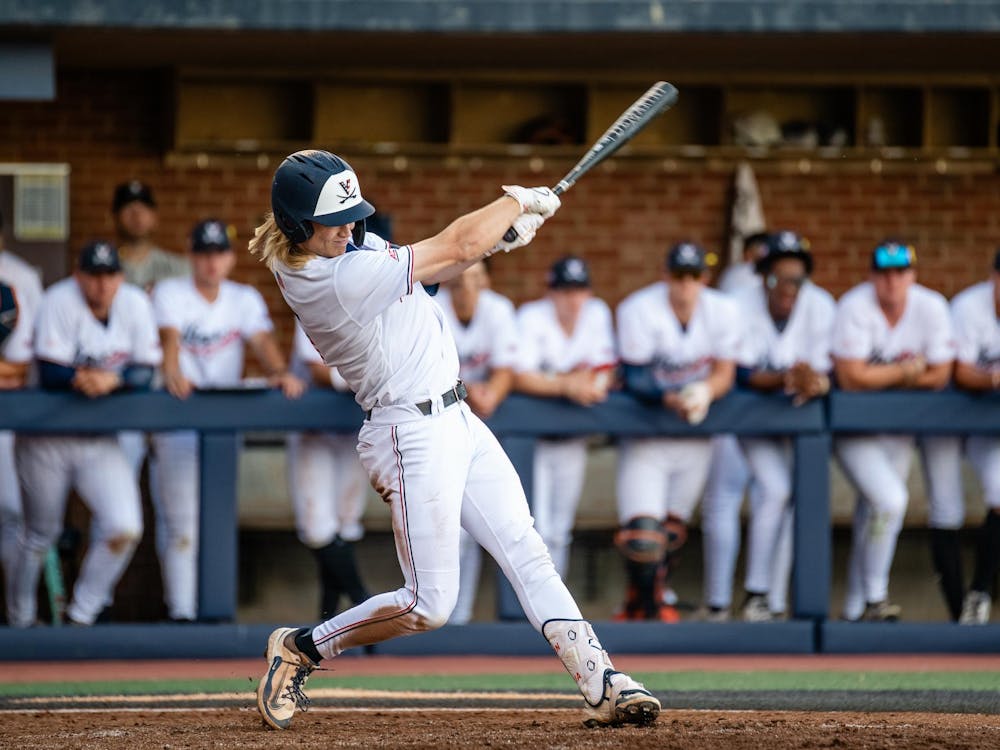Wednesday, November 8, 2000 was a good day for Virginia basketball coach Pete Gillen.
His team was rising in the polls and would eventually land a No. 5 seed in the NCAA Tournament. A few months later, he would sign a contract extension for 10 years that would pay him about $900,000 each season. To top it all off, he had just secured "the best recruiting class in the ACC," according to recruiting analyst Bob Gibbons.
That class of point guard Keith Jenifer, shooting guard Jermaine Harper forward Jason Clark and center Elton Brown would indeed be pivotal for the development of the program under Gillen. But instead of launching the Cavaliers to the top of the ACC and cementing Gillen's place among the coaching elite, the self-termed "Fab Four" plunged Virginia into a four-year slump and left their once-promising coach with only a fraction of the job security he enjoyed at the beginning of the decade.
The remnants of a class which came in with so much promise are about to end their basketball careers mired in disappointment. For the four players who entered the University in 2001, their time here could be defined as a Disgrace Odyssey.
Jenifer was notorious as much for his frequent marijuana use as for his tendency to turn the ball over. A speedy point guard who earned several starts during his first year, Jenifer never lived up to his potential. He was a streaky shooter and often found himself in foul trouble. Off the court, he was arrested for assault and battery midway through his sophomore season and was suspended from the team for the remainder of the year. He now is playing at Murray State, trying to break out of the shadow of his younger, more successful cousin Carmello Anthony.
Jenifer wasn't the only member of the class of 2005 to get himself into trouble off the court. Harper was arrested and charged with a DUI in November 2002. After sitting out the first few games of the season, Harper never managed to break through. Despite scoring 5.8 points per game during his freshman campaign, he managed only 3.9 ppg in his second season. Harper, too, left Virginia after the 2002-03 season and transferred to Cal State Fullerton.
Without two of their prized guards, the Cavaliers lacked experience in the backcourt entering the 2003-04 season. A natural shooting guard, Todd Billet was forced to play the point. Freshmen guards T.J. Bannister and J.R. Reynolds were thrown into the fire of ACC play with little experience under their belt. And as if the vacancies at the guard positions weren't enough, the Cavaliers were forced to fill another hole in their lineup when Clark failed to maintain his academic eligibility for the 2003 fall semester.
Clark had been a solid defensive presence in the paint for the Cavaliers in his first few seasons, and he was sorely missed during the opening games of the 2003-04 season. By the time he brought up his grades, returned to the court and got back into the swing of things, he helped the Cavaliers pull a string of late-season upsets that almost earned them an NCAA berth. And just when the momentum seemed to be carrying over to the 2004-05 season with an upset victory over Arizona and a top-25 ranking, Clark's grades for the 2004 fall semester came in. He would have to sit out his final semester because of his struggles in the classroom.
With Clark gone for the season, Brown would have to pick up the slack in the post for the Cavaliers. The 6-foot-9 center had always been known for his ability to score in the post and averaged almost 15 points a game last year. Defense has never been his strong point, however, and the absence of Clark magnified these flaws. After the Cavaliers allowed 208 points in a two-game stretch against North Carolina and Providence, Brown found himself riding the bench in favor of Jason Cain.
Brown has never been known for his hustle or his ability to come through in the clutch, and his struggles continued last weekend against Maryland when he shot 3-for-13 from the free throw line. Now there is a new facebook group titled "I want to play HORSE with Elton Brown."
In an interview with the Washington Post's John Feinstein last week, Gillen talked about the mistakes he has made in recruiting during his time at Virginia. Gillen was successful in the past with players who were rough around the edges, finding ways to mold them to the college environment. At Virginia though, this method just hasn't worked very well. Gillen admitted that he "took some kids here that weren't bad kids, but they were knuckleheads."
"Knucklehead" is a very Gillen-esque term, but it's also very appropriate for the kind of players who have graced the court at Virginia during his tenure.
Gillen has made some progress since his recruiting debacle four years ago. He has brought in such talent as Todd Billet, Devin Smith and Sean Singletary since that fateful class. But it certainly seems like it's too, little too late for Gillen. The Cavaliers seemed destined to head to the NIT for the fourth straight season. And with a new arena set to open in 2008 and a frustrated alumni base growing more and more uneasy, Gillen will likely not be around Charlottesville for too much longer.
It could have been different, but the failures of the Class of 2005 continue to haunt Gillen -- over four years after that fateful day in November 2000.






